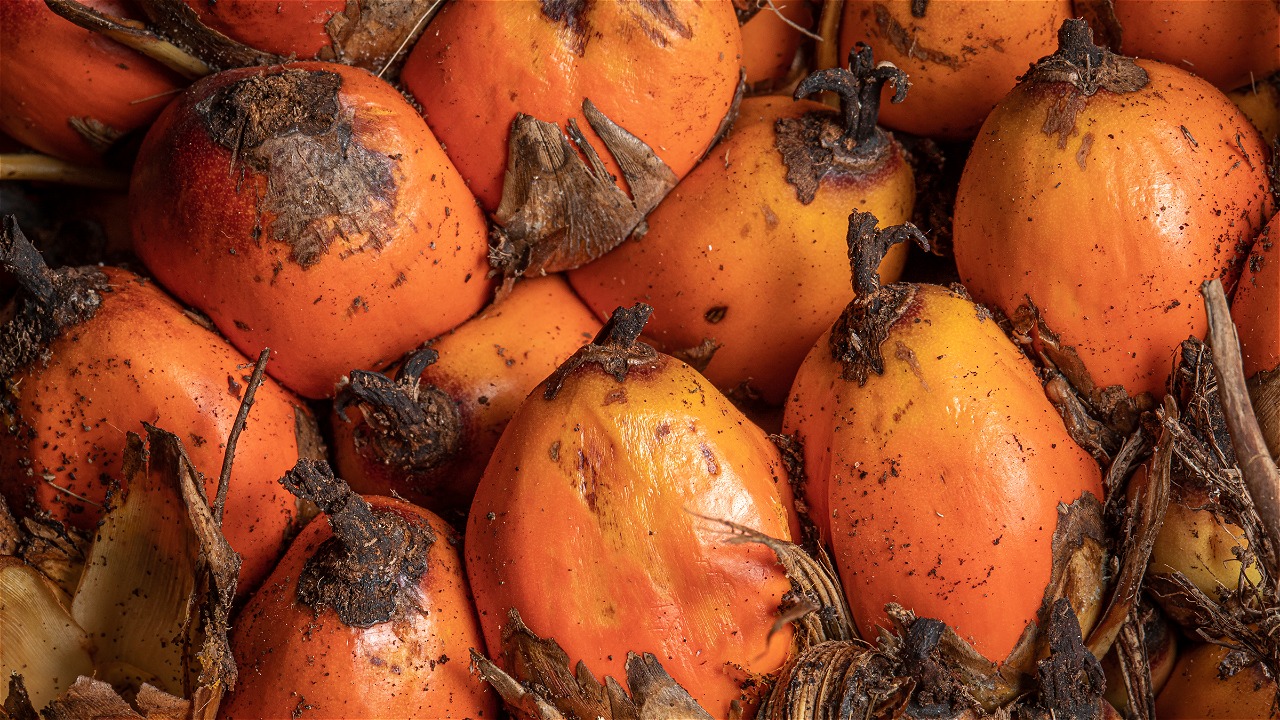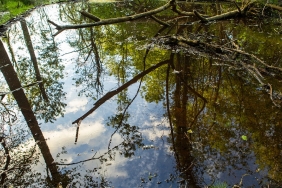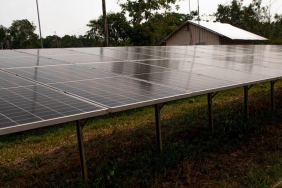EOF: PALM OIL COMPANIES IGNORED, SUPPLY POLLUTED BY DEFORESTATION FOREST CONSERVATION
JAKARTA, PEKANBARU- An EoF report published today shows how crude palm oil (CPO) illegally grown in State-owned protected areas such as Sumatran tiger, elephant and orangutan habitats in Sumatran forests has entered the supply chains of some of the world's best-known palm oil suppliers: Wilmar, Golden-Agri Resources, Royal Golden Eagle and Musim Mas.
"We are disappointed that despite the commitment of these corporate groups to halt deforestation, none have been able to ban palm oil of questionable legality from their supply chains," said Nursamsu of WWF-Indonesia's deforestation monitoring division. "In an environment where palm oil is produced from a growing number of illegal plantations, a growing number of suppliers and mills without their own plantations, buyers need to focus on tracing all palm oil supplied all the way back to the plantation."
EoF found that trucks carrying illegal fresh fruit bunches (FFB) traveled up to 128 km and spent 5 days on the road, far enough to reach dozens of CPO mills. The analysis identified that almost all CPO mills in Sumatra are at risk of buying illegal or tainted palm fruit because they are grown in deforested areas. The location and distance of the mill from the natural forest of the palm oil mill is not a good indicator of the risk of buying illegal products.
"We fully agree on the complex issue of tracing FFB to its source. But we warn that this could be a loophole that allows the supply of fresh fruit bunches to come from plantations that are very destructive to the natural resources of this country," added Nursamsu.
Sellers are aggregating FFBs from 'third-party plantations' that could potentially be grown from illegal or environmentally damaging oil palm plantations, and this should be of concern to all mill managers. "Mills should consider a cautious approach towards suppliers who cannot prove the location, legality and sustainability of all their FFB sources," Nursamsu advised.
Buyers should instead only deal with mills that are able to prove they have a working system to trace the FFB they receive, he added.
Over the years palm oil has caused massive deforestation in Indonesia, particularly Sumatra. Clearing forests for oil palm plantations in the areas we investigated typically uses the practice of burning to prepare the land for oil palm planting. In 2015, Indonesia and neighboring countries experienced one of the real impacts of deforestation - smoke and greenhouse gases from fires that were difficult to extinguish. It is estimated that the fires resulted in emissions of 1.75 billion metric tons of CO2 equivalent, more than all the fossil fuel emissions of Germany or Japan.
""Lack of government decisiveness and enforcement across the country, coupled with increasing global demand for palm oil are the main causes of forest and land fires in Indonesia. It also encourages large-scale encroachment on protected forests for the development of illegal oil palm plantations. This encroachment must be stopped," said Woro Supartinah, Coordinator of Jikalahari.
""Some companies try to hide behind smallholders and their livelihoods so that there is a justification so that the source of their FFB is not questioned. However, the results of the investigation found that many illegal plantation developers are actually financed by a handful of elites and companies that make a lot of profits," said Riko Kurniawan, Executive Director of Walhi Riau. "If companies really care about smallholders, they should work directly with smallholders in the regions instead."
The groups mentioned in this report are industry groups that have profited from deforestation in Sumatra over the years. Today, the forest cover of the Tesso Nilo National Park is only 18 percent, the rest is palm oil. The FFB is processed and processed in mills.
EoF calls on the companies linked to the destruction of this unique habitat to address their legacy of forest destruction by immediately contributing to the conservation and restoration of the country's ecosystems that have been victimized by the illegal expansion of oil palm plantations.
""This is the right time for all stakeholders to come together to tackle systemic illegality and unsustainability in Indonesia's palm oil sector. As well as ensuring that the industry truly changes its path to a green and sustainable economy,"" Riko added.
DONE
For more information contact:
Woro Supartinah, Jikalahari / sekretariat@jikalahari.or.id / +62 813 1756 6965
Riko Kurniawan, Walhi Riau / rikokurniawan@gmail.com / +62 813 7130 2269
Nursamsu, WWF-Indonesia / nursamsu@wwf.id / +62 811 7582 217
Note to editors:
- EoF reached out to the group of companies investigated, Wimar, GAR, RGE and Musim Mas with their responses and read the final draft of our report. Their responses are included in Annex 3 of the EoF Report
- Today EoF published data on 196 CPO mills in Central Sumatra, as part of its traceability of illegal and tainted CPO to CPO mills and refineries or storage stations as depicted in the interactive map at http://maps.eyesontheforest.or.id
.





